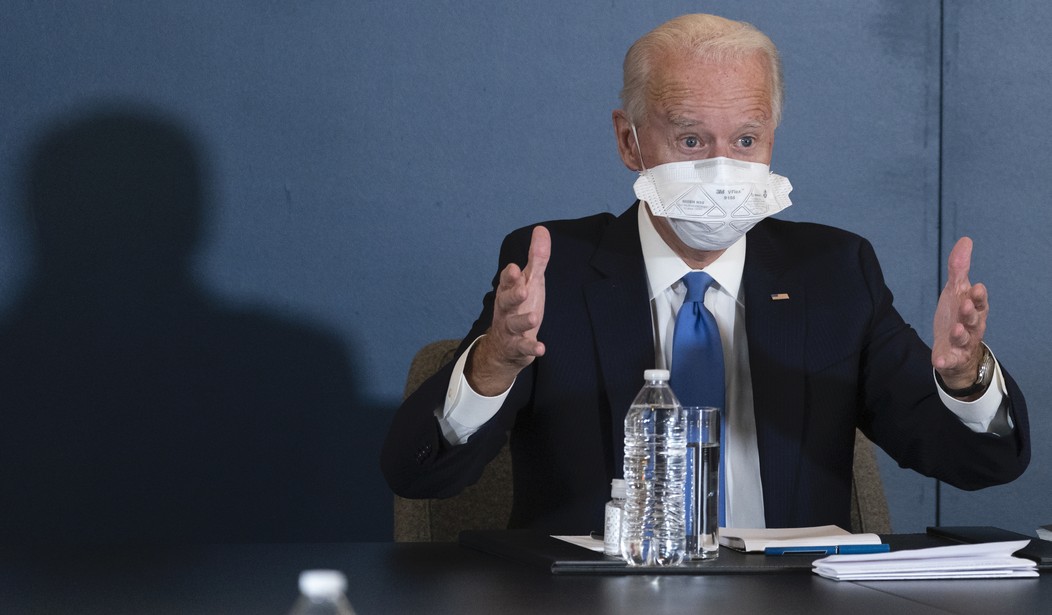Joe Biden recently named a whole host of Big Tech alumni to his inner circle.
The President-elect has named Ron Klain, a former executive council of Silicon Valley’s top trade group, as his chief of staff; Louisa Terrell, a former Facebook senior executive, as his White House director of legislative affairs; and Cynthia Hogan, a former Apple lobbyist, to serve on his transition team.
These appointments create concerns given the pro-Biden bias some Big Tech companies showed during the presidential campaign. They also raise red flags about fairness and whether Biden will reward favored tech firms.
The question remains: How will a pro-Big Tech Biden administration affect the tech accountability movement?
First, the bad news. There’s reason to believe that Biden will encourage increased censorship.
Both Biden and Trump have said they would like to repeal Section 230 of the Communications Decency Act. This provision allows tech platforms to decide how to moderate content on their platforms and protects them from responsibility for what users post.
However, while Trump has threatened to do away with Section 230 in the name of safeguarding free speech, Biden wants to repeal Section 230 for the exact opposite reason.
The former vice president believes tech companies must do more to suppress “hate speech.” Rather than stopping tech companies from exploiting their moderating authority as a way to suppress conservative views expressed on their platform, he wants them to silence even more user content.
Biden is also expected to take a softer approach towards China, a nation of importance to Big Tech’s operational practices. He has promised to lift Trump’s tariffs on China (although aides have walked back that claim) and will likely allow tech companies to keep manufacturing plants there.
Trump, in contrast, threatened to levy new taxes on businesses that make products in China.
All is not doom and gloom for the tech accountability movement. It appears that added safeguards from the Trump administration, individual states, and the Supreme Court will safeguard consumers’ interests and minimize the number of substantiative setbacks that the Biden White House can make to the tech accountability movement.
For example, the Justice Department filed a civil antitrust lawsuit against Google in October for “unlawfully maintaining monopolies through anticompetitive and exclusionary practices.” A report from the Wall Street Journal indicates that the Federal Trade Commission and state attorneys general will follow it up in the coming weeks with antitrust lawsuits of their own. Experts expect these suits to clamp down on Google’s predatory search, online advertising, and Android business practices in ways that could fundamentally alter the company’s operational practices.
Additionally, the Supreme Court appears likely to find against Google in the landmark intellectual property theft case Google v. Oracle. That would make it harder for the search engine giant to unfairly pilfer trade secrets from competitors.
Legal analysts anticipate that the Bench’s forthcoming opinion will set a precedent that clamps down on Google’s monopolistic practices and discourages departments and agencies from implementing policies favorable to the company in the future
A coalition of more than 40 states is also expected to sue Facebook as early as next week. Their antitrust lawsuit will likely prevent the social media giant from continuing to purchase smaller rivals in its quest to prevent competitors from arising in the marketplace — meaning that added tech competition may be right around the corner.
There’s little doubt that President Biden will be more chummy towards Big Tech than his predecessor. However, legal and administrative precedents, coupled with the pressure that comes with wide bipartisan criticism over the tech industry’s operational practices, should make Americans rest easier.
Drew Johnson is a tech policy expert and government watchdog who previously served as executive director of Protect Internet Freedom.









Join the conversation as a VIP Member